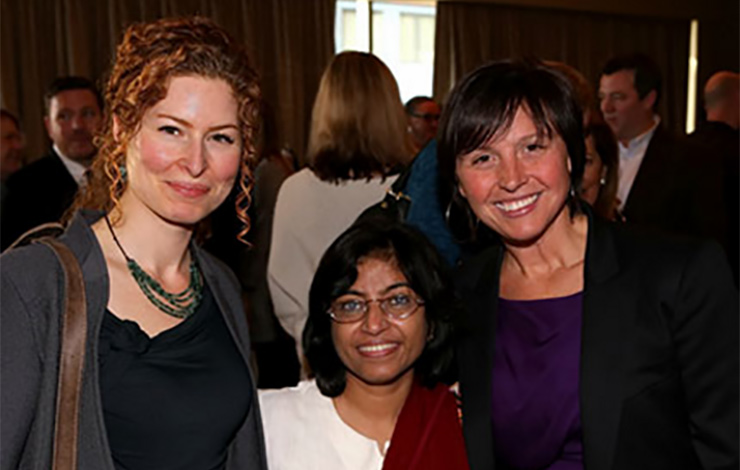

As we mark International Women’s Day on March 8th, we have the occasion to review the progress and setbacks for women’s rights around the world. The World Justice Project is honored to work with a diverse network to identify and remove the barriers that prevent women and girls from having equal rights.
One leader in our network, Dr. Sunitha Krishnan, recently met with WJP staff and spoke about her work rescuing and rehabilitating trafficked girls in India at an event led by Vital Voices. Krishnan is the co-founder of Prajwala, an anti-trafficking organization based in Hyderabad, India, that works to prevent forced prostitution as well as rescuing, rehabilitating, and advocating for trafficked women and children.
Prajwala was founded in 1996 to rehabilitate thousands of women and children that were forcibly evicted from Hyderabad’s oldest red light district, Mehboob ki Mehindi. Today, Prajwala has shelters for children who have been rescued from pornography, sex tourism and prostitution. They are children who have been kidnapped, lured by false promises of employment, sold by their own parents, or trapped by debt bondage. Most of them are HIV positive. The youngest is three and a half years old.
Sunitha’s commitment to combatting trafficking and forced prostitution undermines this highly lucrative criminal industry, and, as a result, she receives regular death threats and has been physically assaulted 14 times. In fact, while Sunitha was traveling to the US to speak at this event, an attack targeted at Sunitha resulted in the tragic death of another Prajwala staff member. Despite these threats, Prajwala continues its work, and has rescued over 9,500 victims from forced prostitution while simultaneously preventing 7,000 at-risk children from entering into prostitution.
Issues such as human trafficking do not have easy solutions, nor can they be combatted by one organization in one country. The solutions must be collaborative. Sunitha knows that Prajwala cannot solve this alone and echoes the WJP’s approach to advancing the rule of law through multidisciplinary collaboration.
“This is a responsibility for all of us. It will also require leaders from other sectors--the tourism/travel industry, international finance, and law enforcement--to create the cross-border partnerships necessary to combat modern-day slavery worldwide.”
Click here to learn more about the session moderated by Sunitha on Combatting Human Trafficking at WJP’s Asia Pacific Rule of Law Conference.






